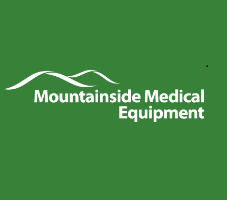Your Skin Is Your Largest Organ Do Some Good For It
- by admin
- February 23 209

Skin care may be trendy these days, especially with beauty
influencers on social media demoing everything from facial steaming to jade
rolling. However, giving your skin some love has both cosmetic and medical
benefits. It refers to the basic care and maintenance of your largest
organ—your skin! It protects you from external pathogens and, as you may know,
holds all of your internal organs in place (phew). And, just as you brush your
teeth on a regular basis, your skin requires some attention to keep it
functioning properly.
Taking
Care Of It Internally
The basic thing is Feeding the inside, which consists of
four basic components:
1. Proper nutrition
Maintain a simple, fresh, and unprocessed approach. That is
the best dietary advice somebody can give. The simpler the food, the less
processing it undergoes, and the fresher it is, the better it is for you. Fresh
fruits and vegetables contain a wide range of nutrients that are essential for
good health. Allow yourself the occasional processed, high-fat meal when you’re
out to eat or have to attend a luncheon or whatever – but make sure you eat
more natural foods than not. Keep your diet varied – try not to eat the same
thing every day – try a new vegetable that you haven’t tried before.
2. Enough rest and relaxation
Don’t work yourself to death – it’s not worth it. Make sure
you get enough sleep. Did you know that a study in England found that if you
don’t get 8 hours of sleep per night, your IQ (intelligence) drops? Consider
this: do you get more work done when you are well-rested? Can you concentrate
more effectively if you’re not tired?
Spend some extra time resting and relaxing so that you can have more
energy and concentration. If you get enough rest, you will find that you can
complete more work in less time.
3. Adequate water intake
This is a critical issue. Most people (regardless of where
they live) will consume approximately 3 litres of water per day, according to
many medical texts. Our bodies only require water to function. If you do not
drink at least this amount, your body will either not function properly (on
some level) or will seek it elsewhere. This is known as dehydration.
Dehydration manifests itself as dry lips, flaky skin, parched mouth, tongue
cracks, and premature wrinkles. But please don’t go the other way. Water is
necessary, but too much water means frequent trips to the toilet.
4. Sunlight and fresh air
Take a long, deep breath. The stuff of life is clean, fresh
air. It should fill your lungs. A trip to the beach or the countryside may not
sound enticing as part of a skincare regimen, but it is an important part of
the “holistic” care required for overall health. By sunshine, It means sensible
sunshine, by the way.
The skin cells require the proper nutrients for proper
development and growth. You can help your skin by using high-quality skin care
products, but you must also support it from within. Only in this manner can you
expect good results from skin care. Recognise that what happens on the inside,
both physically and emotionally, does indeed manifest on the outside. Because
the ageing you see in your skin is biological rather than chronological, it can
be delayed or even reversed with a holistic, natural approach that includes an
optimal diet, lifestyle, and product selection. Even in skin care, the old
adage holds true: garbage in, garbage out!
External
Skincare
Also there are three basic elements in external skin care as
well:
1. Cleanse and condition the skin
2. Tone and hydrate
3. Moisturize and revitalise.
Cleansing the skin appears obvious; people think they know
how to use soap – wrong (most likely)! This is one sure way to make your skin
dry out faster. Most soaps remove the skin’s natural oils, alter the pH levels,
and do nothing to remove dead skin layers, which can clog pores and cause
blackheads. The skin produces oils and acids to help it function, protect it
from moisture loss, and form a barrier. Please avoid using soap or detergent
unless absolutely necessary.
Using a gentle exfoliator will remove dead skin cells,
promoting better blood circulation and allowing your skin to breathe. But be
wary of the term “scrub.”
The skin will then be hydrated and toned. After removing the
dead skin layers with a specially formulated cleanser, it’s time to remove the
residue, soothe the skin, and prepare the skin for a good feed of nutrients
from the moisturiser.
Preparing the skin before applying moisturiser is analogous
to preparing a surface to receive a new coat of paint. You wouldn’t just paint
over a wall that hasn’t been cleaned and prepared for new paint, and the same
is true for good skin care. You start by removing the old layer of paint, then
apply a primer and finally, the top coat. If you already use a moisturiser,
you’re on the right track.
But have you taken a look at the ingredients? Are they
natural, or are there numbers and words on the label that you don’t recognise?
If this is the case, consider that your body absorbs these substances, and if
they are not useful (preferably natural), the body must eliminate them. In some
cases, the body is unable to eliminate these substances and must instead store
them. This is a potential issue that could lead to health problems in the
future. Pure essential oils or herbal extracts are typically beneficial
ingredients to include in skin care products.






Leave A Comment